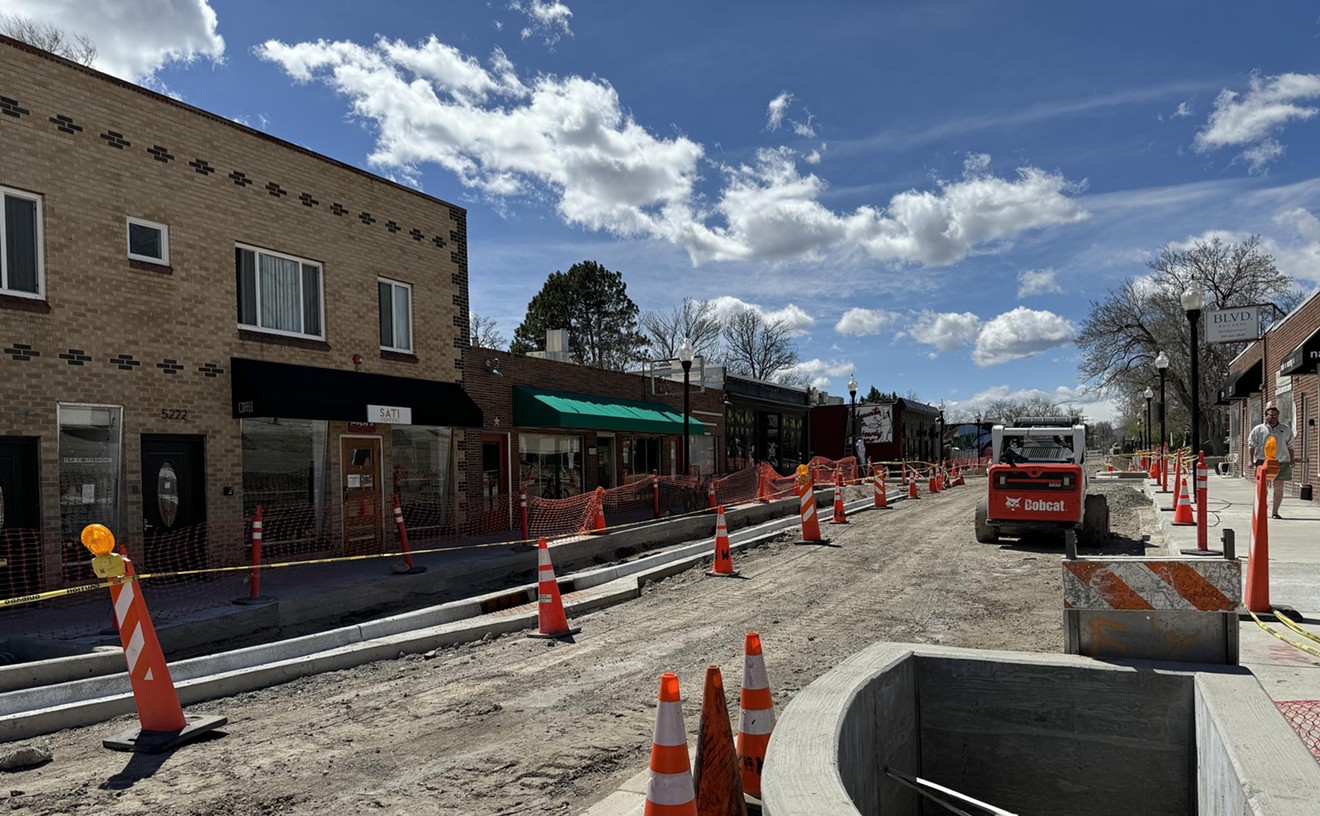See also: The Eternal Flame of Saganaki Burns on at Pete's Greek Town Cafe
Those who might say that American barbecue couldn't possibly be an ethnic cuisine haven't been to the places where barbecue is practiced in its native element: the whole-hog pits of South Carolina and rural Tennessee, the rib shacks of Memphis and Kansas City, or the original butcher counters of Texas Hill Country, where beef sausage, beef ribs and beef brisket are the products of the culture, the economy and the heritage of the surrounding people. Barbecue from each region has distinct language patterns, traditions, practically even religions. If there ever was a Denver barbecue style -- born in the early dusty days of Platte Valley settlement -- it's been lost in the passage of time. What we have instead are the immigrants and refugees from barbecue country who left for many reasons -- economics, education, escape from racial or religious intolerance -- but who didn't leave behind their love of wood-smoked meats. Wayne Shelnutt is one such immigrant; he speaks the language of post oak and hickory and spreads the word of brisket. At Wayne's, they sell meat by the pound, lots of meat. It's all the same price ($16 for a pound): beef brisket, pork ribs, sausage, chicken and even fish. They make it easy for you; you just tell them how much (or how little) you want and they weigh it and write a number in grease pencil on the butcher paper that holds your order. And if you're not sure what a half-pound of meat looks like, you could probably just point to the meat and say "about that much." Typical of Austin-style barbecue joints, Wayne's opens for lunch and closes when all the meat is gone (or by 4 p.m. at the latest). They say "hi" when you walk in the door, and they say "Thanks, come back soon" when you leave, even if you're trying to sneak away unnoticed because you're embarrassed by the sauce stain on your shirt. There are plenty of signs around too, just to help you figure things out. Saturdays, according to one sign, are Johnny Cash Saturdays, when paying in real money gets you a ten percent discount and "Jackson" or "Folsom Prison Blues" can be heard above the low roar of the massive oven hood and the drawls of displaced Texans lining up for lunch. Brisket is king, with sausage a close second, although on the day I visited, the sausage had already sold out by shortly after noon. The seasoning on the brisket is simple and the time in the smoker is long, creating a coffee-hued bark with a bite of black pepper over a pink smoke ring. Compared to some of the Texas masters (John Mueller or the Salt Lick's Scott Roberts), the flavor from the wood is mild, but the meat is juicy and infused to the very center with seasoning and smoke. Ask for meat from the fatty end of the brisket and you won't even need sauce; the fat drippings, dry rub and smoke combine to make their own groan-inducing jus, pooled on the butcher paper at the bottom of the basket. Wayne's has three kinds of sauce if you need it: a tangy blend strong with black pepper but not sticky-sweet, a spicier version of the same, and a yellowish mustard-based sauce that actually went best with the smoked catfish and the baked beans (which weren't pintos but rather navy or great northern). The ribs are labeled as St. Louis-style -- a nod to the cut rather than the seasoning or cooking style. Wayne's pork ribs have the same dark crust as the brisket and the same toothsome quality that comes from patience and dedication. Texas pit masters, when cooking pork, tend to favor the heavy-duty spare-rib rack rather than the dainty baby-backs. Many leave the rib tips intact, maybe just to scare off the beginners, but these have been tidily trimmed to leave only a little of the cartilage, which I don't mind, since the racks have been cooked slow enough that the the crunch of the cartilage is gentle, not jarring.Since the sausage had sold out, we decided to try some smoked catfish. The flavor was good, but the fish was a little soggy and cool. Catfish just doesn't do very well unless its cooked and served immediately with the steam still rising from the flesh. The sides were as sides almost always are -- simple fillers to keep the guests from cleaning the place out of meat too quickly. Hearty mashed potatoes, creamy and well-executed mac and cheese, those odd beans -- none of the things I set out for and not the things that would draw me back.
That waft of post oak, though -- it's enough to get me back on that damned stretch of Highway 36 despite the construction traffic and the Boulder drivers. Good barbecue, in any case, should not come without a journey. In fact, I can't imagine living within walking distance of a good smokehouse. Barbecue, as we all know in Denver, is always better somewhere else. The stories woven by folks from exotic locales like Driftwood or Lockhart or Taylor become legendary with even a short passage of time -- just like those from natives of Memphis, St. Louis or small towns like Hemingway or Goldsboro, South Carolina. If "somewhere else" means Superior, I'll take it.
For more from our tour of Denver's cultural, regional and international restaurant scene, check out our entire Ethniche archive.
Follow @CafeWestword











